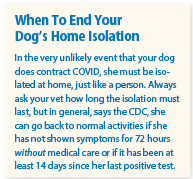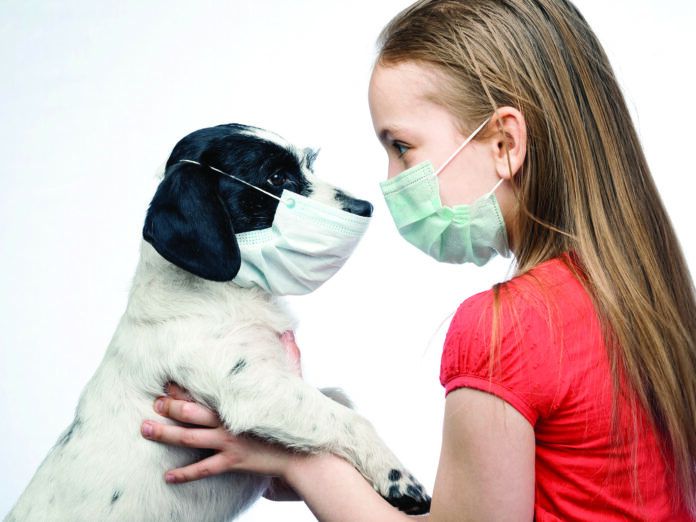With reports of pets becoming sick from COVID-19, you might very well wonder whether it is appropriate for your dog to be tested for the disease. Perhaps she is having respiratory signs like sneezing or shortness of breath, or she has been in close contact with someone who has tested positive.
Despite concerns, neither the Centers for Disease Control (CDC) nor the American Veterinary Medical Association (AVMA) believe that routine testing of pets is appropriate at this time. There are actually very few verified reports of dogs having become infected with the virus, and even fewer reports of dogs having actually become ill. That said, there are instances in which testing might be called for.
The right situation to test a dog for the disease
The AVMA lists a number of signs of illness in dogs that could be suggestive of infection
with COVID.
- fever
- coughing
- difficulty breathing or shortness of breath
- lethargy
- sneezing
- nasal or eye discharge
- vomiting
- diarrhea
If your pet exhibits any of these symptoms, you should of course bring her to the veterinarian. But the doctor’s first order of business will not be to administer a COVID test. Many other diseases and conditions — ones that are much more common than COVID — can lead to these signs of illness in pets, and the doctor will first rule out all those other causes. Only if your dog is negative for any of the other conditions might she be considered a candidate for the test.
The veterinarian will not make the decision on her own. The AVMA says the choice on whether to submit a dog to COVID testing should be made collaboratively between the doctor and local, state, and/or federal public health officials as well as animal health officials. If a test is deemed necessary and comes back positive, the results should be confirmed by a USDA National Veterinary Services Laboratory.
Another situation in which a COVID test for your pet might be deemed appropriate by your vet in consultation with other health authorities is one in which your dog has been in close contact with a known or suspected COVID-19 human patient, or exposed to a high-risk environment such as a nursing facility where an outbreak of the virus took place. But again, it’s not as though a dog who has been exposed to someone with COVID becomes an automatic candidate for testing. The vet will determine the best course of action depending on such factors as the dog’s current state of health.
What if my dog contracts COVID?
The good news is that most dogs who come down with COVID end up with mild symptoms that can be treated at home, the CDC points out. It is “extremely rare” for dogs to end up with serious illness.
Other good news is that the risk of dogs spreading the illness to people is quite low. Unfortunately for dogs, the same is not necessarily true about the illness spreading from people to them. While relatively few dogs have been infected with COVID, it has been mostly after close contact with people who had it. For that reason, the CDC advises that if you come down with the virus, you should avoid contact with your dog, just like you would with people. Contact includes petting, snuggling, kissing, licking, sharing food, and sleeping in the same bed, the federal agency says. Of course, someone else should be taking the dog out for walks — or taking her to the veterinarian, if need be, although your veterinarian might offer a telemedicine consult for treating a sick dog.
with people. Contact includes petting, snuggling, kissing, licking, sharing food, and sleeping in the same bed, the federal agency says. Of course, someone else should be taking the dog out for walks — or taking her to the veterinarian, if need be, although your veterinarian might offer a telemedicine consult for treating a sick dog.





